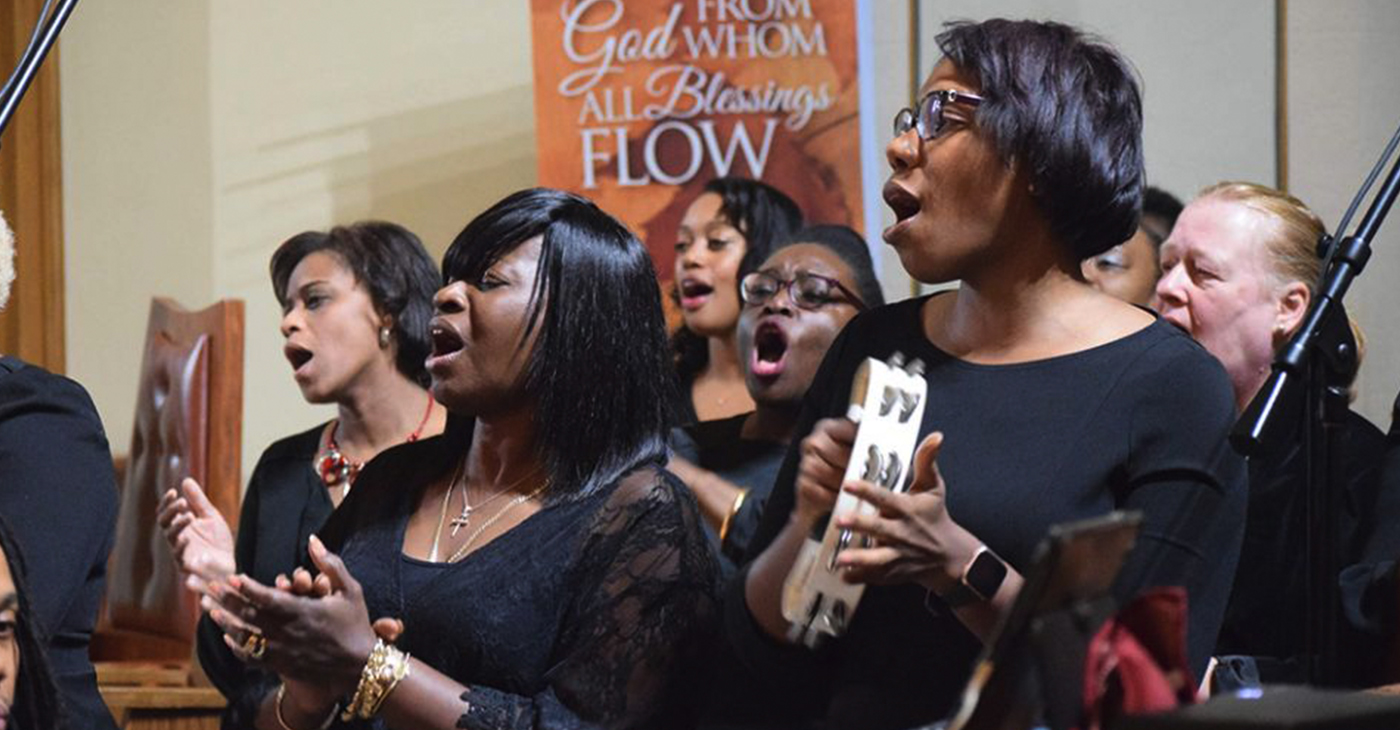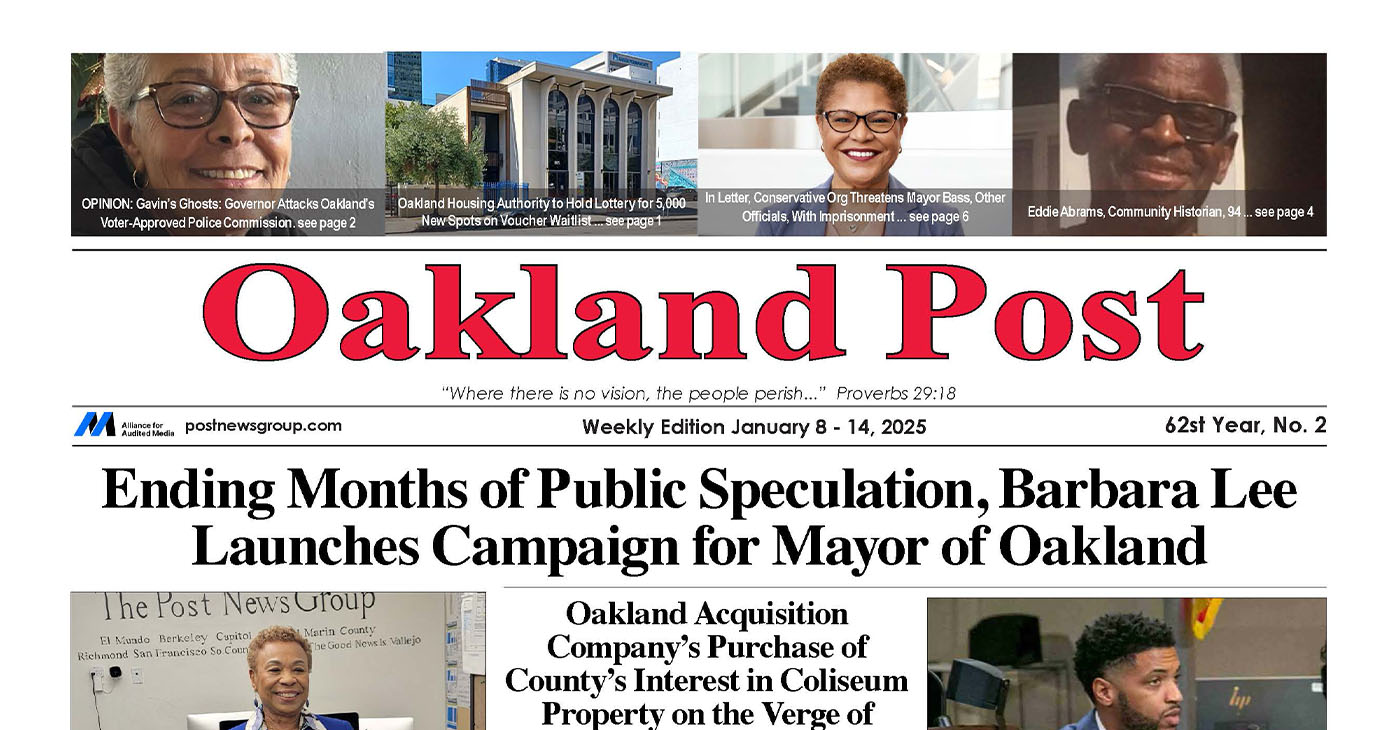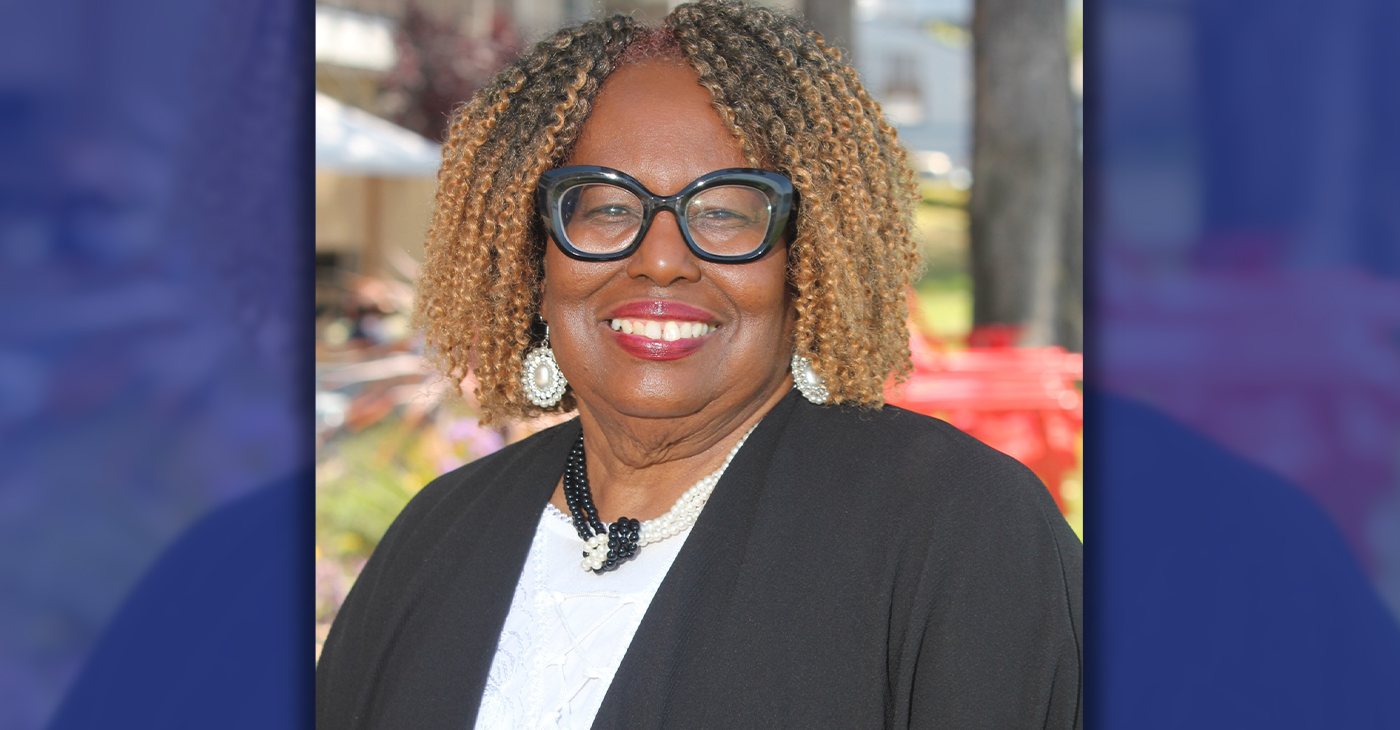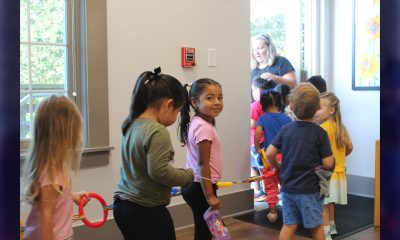Black History
OP-ED: New Study Brings Black Catholics into Forefront
Pew’s 2021 study reports that 46% of Black young adults in Generation Z (ages 18-23 at the time of the survey) seldom or never attend religious services. Organized religion — across denominations — ignores this finding at its peril. The sex abuse crisis has already damaged the church’s credibility across generations. This reality coupled with Pew’s finding that close to half of all young Black American adults rarely or never attend religious services should be a warning to Church leaders that concrete action must be taken now.

By Nia Tia Noelle Pratt
My entire 20-year career has been about ending the erasure of Black Catholics from academic and public discourse.
This is one of the reasons I began the #BlackCatholicsSyllabus and articulated from the outset that the point of the syllabus is to prioritize the voices of Black Catholics in the creation of our own narrative. It’s also why this week’s Pew Research Center report, “Black Catholics in America” is the data I dreamed of having as an undergraduate and graduate student. I also dreamed of having a report like this in the years since I finished graduate school.
Much of my efforts have focused on ending erasure within the Catholic sphere. However, Black Catholics are not just erased from Catholic narratives — they are also erased from discourse on the Black church as well.
This dual erasure is why Pew Research Center’s report is so important. Along with last year’s “Faith Among Black Americans,” this week’s survey on Black Catholics is urgently needed. Both are poised to be regarded as landmark studies.
“Black Catholics in America,” published on March 15, examines Black Catholics within a larger Catholic contest and within the context of “Faith Among Black Americans.”
The new study tells us that 6% of Black Americans are Catholics. While this percentage is admittedly small, it still means that there are nearly 3 million Black Catholics in the U.S.
Millions of people must be included in the conversation about what it means to be Catholic in our country if the conversation is going to be comprehensive. Furthermore, we learn from this study that 20% of Black Americans born in sub-Saharan Africa and 15% of Caribbean-born Black Americans identify as Catholic while only 5% of U.S.-born Black Americans identify as Catholic.
“These numbers tell us that Black Catholics in the United States are not a monolith. These drastically different numbers deserve further consideration by scholars and the United States Conference of Catholic Bishops as well as dioceses and parishes. Church leaders must keep this in mind in ministering to Black Catholics and creating pastoral plans. Similarly, scholars must incorporate this knowledge into their research.
I was not surprised to learn from the full report that only 17% of Black Catholics attend a predominantly Black church and a comparable 18% of Black Catholics report a combination of call-and-response, and other expressive forms of worship during Mass. Part of my research involves examining liturgy as a form of identity work where I’ve discussed just this type of worship experience in detail.
I’ve discussed at length how African American Catholics incorporate music, preaching and Church aesthetics into liturgy in order to create a unique identity as African Americans and as Catholics.
Only 41% of Black Catholics report having heard a homily on race in the 12 months prior to completing the survey and only 31% reported hearing a homily on political engagement in the same time period. The reckoning around systemic racism that we have seen over the last year has demonstrated that it is long past time for the church to regard racism as a pro-life issue.
For this reason, these findings are also a call to action. A thunderous 77% of Black Catholics said that “opposition to racism is essential to what being Christian means to them.”
Many Black Catholics are not getting a message at Mass that they identify as something essential to being a Christian.
This week’s report also tells us that 46% of Black adults who were raised Catholic no longer identify as such. The aforementioned disconnect between the themes Black Catholics hear about at Mass and what they consider essential to being a Christian provides some insight as to why so many Black Catholics leave the church. The results for young adults only exacerbate this situation.
Pew’s 2021 study reports that 46% of Black young adults in Generation Z (ages 18-23 at the time of the survey) seldom or never attend religious services. Organized religion — across denominations — ignores this finding at its peril. The sex abuse crisis has already damaged the church’s credibility across generations. This reality coupled with Pew’s finding that close to half of all young Black American adults rarely or never attend religious services should be a warning to Church leaders that concrete action must be taken now.
Since the summer of 2020, the U.S. bishops’ conference has hosted “Journeying Together” as an ongoing series of events focused on young adults and those who minister to young adults. While this is a concrete action directed at young adults, it reaches those who are already actively engaged in the church. Evangelization must be directed at those young adults who are not, or are only minimally, engaged. Refusing to critically engage this group will not bode well for the sustainability of parishes and schools in the decades to come.
Tia Noelle Pratt is director of mission engagement and strategic initiatives and courtesy assistant professor of sociology at Villanova University in Villanova, Pennsylvania.
Activism
Oakland Post: Week of January 8 – 14, 2025
The printed Weekly Edition of the Oakland Post: Week of January 8 – 14, 2025

To enlarge your view of this issue, use the slider, magnifying glass icon or full page icon in the lower right corner of the browser window.
Activism
Barbara Lee Launches Campaign for Mayor of Oakland
“At this critical moment, we must not be a city divided, but a community united,” she Lee. “If elected I will bring my hands-on leadership, new ideas and decades of experience in identifying billions in resources for our great city, so all residents and businesses are stronger and safer and our community has optimism and confidence in Oakland’s future.”

By Post Staff
Barbara Lee on Wednesday morning formally announced her candidacy for Mayor in Oakland’s April 15 special election.
“Time and time again, Oaklanders have faced our toughest obstacles by uniting to meet our challenges,” said Lee.
“At this critical moment, we must not be a city divided but a community united,” she said. “If elected, I will bring my hands-on leadership, new ideas, and decades of experience in identifying billions in resources for our great city so all residents and businesses are stronger and safer and our community has optimism and confidence in Oakland’s future.”
“As Mayor, I’ll address our homelessness crisis, prioritize comprehensive public safety and mental health services, and lead with fiscal responsibility to deliver the core City services residents and business owners deserve. Let’s do this – together.”
“I’ve never shied away from a challenge,” said Lee. “I’m always ready to fight for Oakland.”
Watch her campaign video here, which is online at BarbaraLee4Oakland.com
Activism
Oakland NAACP President Stands on the Frontlines for Equity
With education as a cornerstone, Adams emphasized the importance of youth having access to quality kindergarten through 12th-grade education along with college or vocational programming beyond high school. “I feel that it’s so important for our children to get a good education in K-12th grade, along with the colleges of their choice, especially with the HBCU’s (Historically Black Colleges and Universities).”

By Carla Thomas
For Cynthia Adams, president of the Oakland chapter of the NAACP, fighting for the rights of Black people comes naturally. With southern roots in Arkansas, Adams experienced firsthand the injustice and unfairness of racism.
“Growing up in the Jim Crow South, I experienced the unfair treatment of people of color and how faith can inspire communities to bring about positive and long-lasting change,” said Adams. Adams says a combination of her family and faith has kept her strong in the face of adversity and inspired her life’s work of advocacy.
Adams chose education as a career path — and a means to achieve equity and overcome racism. She earned her bachelor’s degree at the University of Arkansas at Pine Bluff and later received an advanced degree from California State East Bay.
Adams’ experience as an Oakland Unified School District (OUSD) recorder, a counselor, a researcher, and a college recruiter has allowed her to be laser-focused on youth. She also served as the chairperson for the Oakland NAACP youth.
“The mission of the National Association for the Advancement of Colored People is to ensure the political, educational, social, and economic equality of rights of all persons and to eliminate race-based discrimination. We want to ensure our citizens have equal rights and opportunities without discrimination based on race.”
As a partner with the State of California’s Stop the Hate campaign, Adams says the initiative is a step in the right direction. “It’s great that our governor and state created the Stop the Hate campaign and provides resources for victims of racism and other hate crimes,” said Adams. “The racism toward Black people has increased and our children are being targeted,” she continued.
“We, at the Oakland branch, created a declaration on racism that will amplify the needs of our community to combat racism,” continued Adams. “That declaration was adopted nationally.”
Bridging communities and collaborating is also a strategy for moving society toward justice, according to Adams.
“Through the NAACP, we build connections between communities and advocate for the rights of historically marginalized and oppressed individuals,” said Adams. “Collective action is the only way to advance civil rights and promote social equity.”
With education as a cornerstone, Adams emphasized the importance of youth having access to quality kindergarten through 12th-grade education along with college or vocational programming beyond high school. “I feel that it’s so important for our children to get a good education in K-12th grade, along with the colleges of their choice, especially with the HBCU’s (Historically Black Colleges and Universities).”
By taking stands on supporting former Oakland Police Chief LeRonne Armstrong to supporting the recall of a mayor faced with a scandal that brought negative national press to the city of Oakland, Adams has always demanded more for her people, and better for Oakland, the city she calls home.
She expressed pride in the national organization’s announcement of a $200 million fund designed to empower Black funders nationwide. “We all know the health of a community begins with economics,” said Adams.
Adams says that strengthening Black businesses automatically sustains a community. “We’ve also got to educate our community on opportunities and teach our children critical thinking so that they can provide the next generation of solutions for society,” said Adams.
-

 Activism3 weeks ago
Activism3 weeks agoBooks for Ghana
-

 Arts and Culture4 weeks ago
Arts and Culture4 weeks agoPromise Marks Performs Songs of Etta James in One-Woman Show, “A Sunday Kind of Love” at the Black Repertory Theater in Berkeley
-

 Bay Area3 weeks ago
Bay Area3 weeks agoGlydways Breaking Ground on 14-Acre Demonstration Facility at Hilltop Mall
-

 Activism4 weeks ago
Activism4 weeks ago‘Donald Trump Is Not a God:’ Rep. Bennie Thompson Blasts Trump’s Call to Jail Him
-

 Activism3 weeks ago
Activism3 weeks agoLiving His Legacy: The Late Oscar Wright’s “Village” Vows to Inherit Activist’s Commitment to Education
-

 Arts and Culture3 weeks ago
Arts and Culture3 weeks agoIn ‘Affrilachia: Testimonies,’ Puts Blacks in Appalacia on the Map
-

 Alameda County3 weeks ago
Alameda County3 weeks agoAC Transit Holiday Bus Offering Free Rides Since 1963
-

 #NNPA BlackPress4 weeks ago
#NNPA BlackPress4 weeks agoCalifornia, Districts Try to Recruit and Retain Black Teachers; Advocates Say More Should Be Done




















































